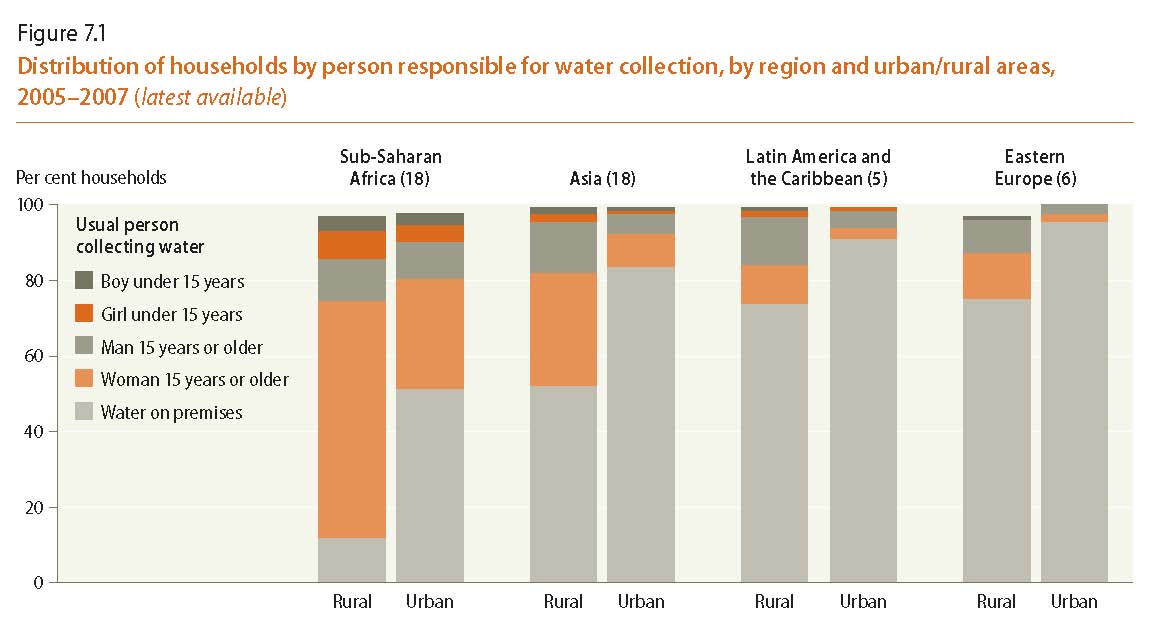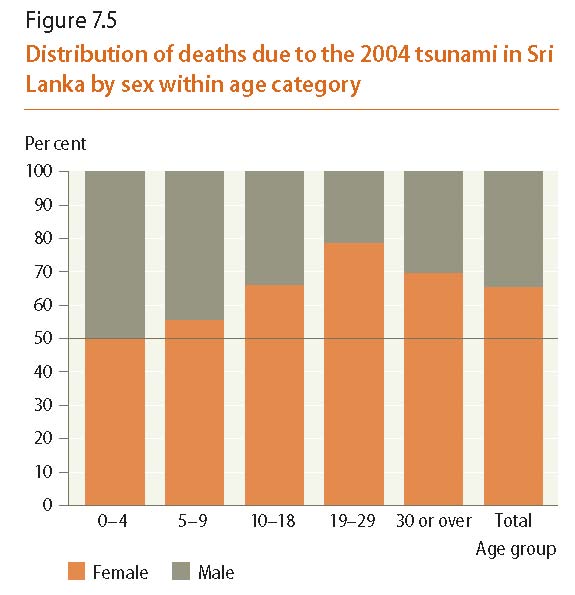

The World's Women 2010: Trends and Statistics
Chapter 7 - Environment
Key findings
• More than half of rural households and about a quarter of urban households in sub-Saharan Africa lack easy access to sources of drinking water, and most of the burden of water collection falls on women.
• The majority of households in sub-Saharan Africa and in Southern and South-Eastern Asia use solid fuels for cooking on open fires or traditional stoves with no chimney or hood, disproportionately affecting the health of women.
• Fewer women than men participate in high-level decision-making related to the environment.
Download chapter 7
Full text (pdf)
English*: Color (551 KB), B/W (388 KB)
Statistical Annex:
Table 7.A Excel (45 KB), Pdf (55 KB)
Download full report (pdf)
English*: Color (7.61 MB), B/W (7.7 KB) *For printing on a non-color printer, use B/W file for better results.Selected visual statistics (Click on the graph to enlarge)

Source: Source: Computed by the United Nations Statistics Division based on data from Macro International, Demographic and Health Survey (DHS) reports (2009) and UNICEF, Multiple Indicator Cluster Survey (MICS) reports (2009).
Note: Unweighted averages; the numbers in brackets indicate the number of countries averaged. The difference up to 100 per cent is made up by the share of households where a person from outside the household would collect the water or missing 0 information.
Source: Computed by the United Nations Statistics Division based on data from Sri Lanka Department of Census and Statistics, Sri Lanka Census on the Persons and Buildings affected by the Tsunami 2004 (2005).

